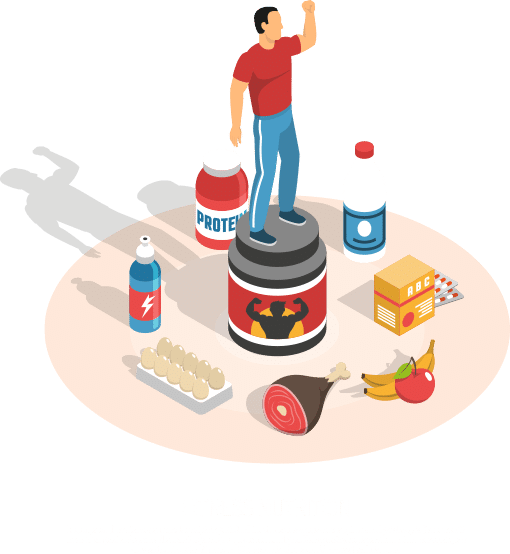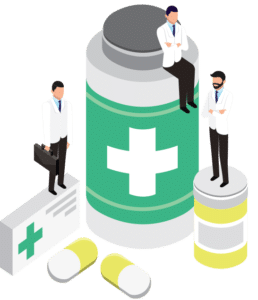Taking dietary supplements has become a religious practice worldwide where adults depend on them for their day-to-day supplementation. We take a look at what dietary supplements are, various forms in which they are made and the benefits.

What are dietary supplements?
It is a manufactured product consumed by mouth to supplement a diet in order to provide dietary nutrients (vitamins, minerals, amino acids, etc.) and from food sources, herbs and botanicals extracts or synthetic products. Dietary supplements are designed in various forms;
- Capsules
- Shakes
- Energy bars
- Traditional pills
- Powders
What do Dietary Supplements do?
Dietary supplements are meant to add on to the diet you take which comprises of variety of foods to ensure you get variety of nutrients for good health. However, diet must be your primary source of nutrients and can be complemented by these dietary supplements, and NOT the other way around.
There are some supplements that have scientific evidence on efficacy and safety. However, not all supplements can do what the label say they can do and it is the responsibility of the user to ensure they take authentic and safe supplements.
For example, provision of folic acid given to all pregnant women to reduce birth defects risks which are backed by scientific evidence. This supplements have helped reduce various kinds of birth defects in babies.

Moreover, the provision of calcium and vitamin D are important for improving bone mass while keeping the bones stronger. This is particularly important for women who have reached menopause as their bone begin to deteriorate due to the significant reduction of estrogen levels leading to osteoporosis.
And for men, they can benefit from taking Saw Palmetto Extract which is a good remedy for prostate health. also, men might need to take the vitamin D dietary supplement to help increase their testosterone levels and thus prevent or improve the erectile dysfunction.
The World Health Organization has also given recommendation to initiate vitamin A supplementation to infants and children who are 6-59 months of age globally to address mortality (death) and morbidity (diseases) in infants and children. And to date, countries in various continents have programmes to ensure all babies have free access to vitamin supplements, even the poor countries are following suit.
And there are other reasons in which people will decide to use supplements to address challenges, deficiencies etc. which might not be common to all people. Whatever the reason, everyone choosing to use supplements do it so it can help improve their life in general.
What is considered a supplement?
Dietary Supplement are constituted of manufactured dietary nutritious products that contain;
- vitamins,
- essential minerals,
- amino acids,
- essential fatty acids
- plants, animals (Herbal and botanicals)
- non-nutrient substances extracts like fungi or bacteria
- live bacteria, especially the probiotics.
What supplement should I take ?
People take dietary supplements to; prevents certain deficiencies, to correct and treat some imbalances, to enhance performance and functions, and many other reasons.
As such, there various types of supplements on the markets and these include;
Nutrient deficiencies
vitamin A
- eye functioning and health (prevent blindness in children)
- reproductive health for both men and women
- immune system strengthening
calcium
- bone formation and strength to prevent osteoporosis
- strong teeth
- prevent abnormal heart rhythms
iodine
- thyroid health promoter
- reduce the risk of goiters
- treatment of thyroid cancer
- neurodevelopment during pregnancy
Iron
- Treat anemia
- Fatigue
- weakness
thiamine (vitamin B1)
- prevent nerve and muscle damage
- prevent short-term memory loss
magnesium
- bone health
- absorption of calcium
- metabolizes glucose and prevent diabetes
- heart health
- prevent migraine headaches
- prevent premenstrual syndrome (PMS)
Fat burner and weight loss
- Caffeine
- Green coffee
- Green tea extract
- Protein powder
- Soluble fiber
- 5-HTP and L-carnitine amino acids
- Conjugated linoleic acid
Hair loss
- Vitamins (A, B vitamins, C, D, E)
- Iron
- Zinc
- Protein
- Ginseng
- Rosemary oils
- Aloe Vera
Sex enhancement
- Collagen protein
- Ginseng
- Vitamin B12
- Zinc
- Ashwagandha
- L-arganinie
Muscle and body building, etc.
- Creatine
- Protein (whey, casein and soy)
- Beta-alanine
- Branched chain amino acids (BCAA)
- Weight gainers (high calorie)
Is supplement good for health ?
Any supplement that have severe side effects is not safe for consumption. It is thus necessary to check the labelling for ingredients to ensure you don’t take a supplement containing ingredients you are allergic to.
That’s why people react differently to different supplements based on their tolerance levels.

Also, some supplements might have active ingredients known to increase the risk of bleeding which might not be good for people who are going for surgery. The other reason that could cause severe side effects is when patients decide to stop their medication to replace them with natural diet supplements.
This is dangerous and could be fatal. That’s why any person with a pre-existing condition need to consult with their doctor or physician before taking any supplement. This is to ensure that whatever you want to take does not interact with your essential treatment. As such these are some examples to look out for;
- Patients on Coumadin® to prevent blood from clotting should avoid taking Vitamin K because it can reduce the ability of the blood thinner.
- Taking St. John’s wort might interfere and make ineffective the birth control and antidepressants pills.
- Taking vitamin supplements like vitamins C and E interferes with some types of cancer chemotherapy thus making them ineffective.
So, this means the safety of a supplement is also determined by individual medication and the treatment they are currently taking. It is important to put your health and treatments first. Even more, certain food especially cereals and beverages are fortified with certain vitamins and minerals and as such supplement users should ensure they check how much of vitamins and minerals they are taking for the RDA and avoid overdose as it could be harmful to their health.
The Labelling of Dietary Supplement
It is imperative to look at the labelling of every dietary supplement before purchasing it to understand what is in the product you want to consume as a safety precaution. It is on the label where you will also learn of the dosage and frequency of consumption to avoid overdose or taking less than what is required.
The risks of dietary supplements OVERDOSE
If you consume more supplements than your body require, you put your health at risk;
- You could suffer from; headaches, reduced bone strength, birth defects and liver damage due to excess consumption of vitamin A.
- Overdoing on iron could cause nausea, vomiting, organs, liver, and other organs damage
- Taking too much vitamin C may cause kidney stones
- Too much vitamin could cause nausea, vomiting, constipation, abnormal heart rhythm, kidney stones, etc.
- Too much zinc could cause nausea, vomiting, headaches, and lowered HDL
Pregnant women only have iron and folic acid recommendation to prevent maternal anemia, peurperal sepsis, low birthweight and preterm birth. These are the recommendation made by the World Health Organization which are a global initiative where public health care centres invest money to make provision to pregnant women in all socio-demographics.
However, taking any other supplement for pregnant women might not be safe for both the unborn baby and the mother. Unless, the doctor prescribes any supplement of any kind, pregnant and lactating mothers should refrain for using dietary supplements. Also, little children should only be given the vitamins recommended for children any other supplements found over the counter are not safe for their immature and immune systems which could compromise their health.
Federal Regulation of Dietary Supplements
Due to the fact that dietary supplements are not intended to treat, diagnose, alleviate, prevent, or treat diseases the FDA does not really have conduct a product pre-review for approval unlike the therapeutic drugs. However, the FDA still oversee dietary supplements and watch out for harmful ingredients where they can ban dietary supplements that are harmful to consumers.

More importantly, the FDA require that manufacturers of dietary supplements provide some evidence on the safety of their product. Manufacturers are also required to make labels for their products as truthful as possible. The dietary supplements could carry messages like “this product addresses a nutrient deficiency, enhance and boost your immune system, it is a fat burner and metabolism booster, etc.
However, such messages must be followed by “This statement has not been evaluated by the Food and Drug Administration. This product is not intended to diagnose, treat, cure, or prevent any disease.” This is to ensure that users do not stop taking their medication and replace them with these dietary supplements.
The FDA is responsible for monitoring every dietary supplement on the market to ensure it is safe. Consumers using any dietary supplements are urged to report any side effects they had after consuming a dietary supplement to both the FDA and the manufacturer.
And if the FDA finds a product to be unfit and unsafe, they could advise the manufacturer to voluntarily recall their product or the FDA could take action and remove the product from the market place so as to protect the public.

Which supplements are dangerous?
There are certain supplements that do not follow the proper protocol in manufacturing their products or even give a misleading message on how the product work.
It remains the responsibility of users to report any adverse effects experienced after using the product as this will help inform the FDA board to initiate their evaluation.
Conclusion
There are too many supplements on the market with lots of promises, some are false. It remains the user’s responsibility to check if the product was manufactured by a reputable company and the label shows the ingredients are safe for consumption. You are responsible for your own health!
Are you a nutritionist?
Our articles are written with the help of recognized dietitians and nutritionists. However, healthy eating is such a vast subject that we are constantly looking for new contributors, experts in their field!
So if you are a nutrition professional, do not hesitate to contact us to join our editorial teams!















